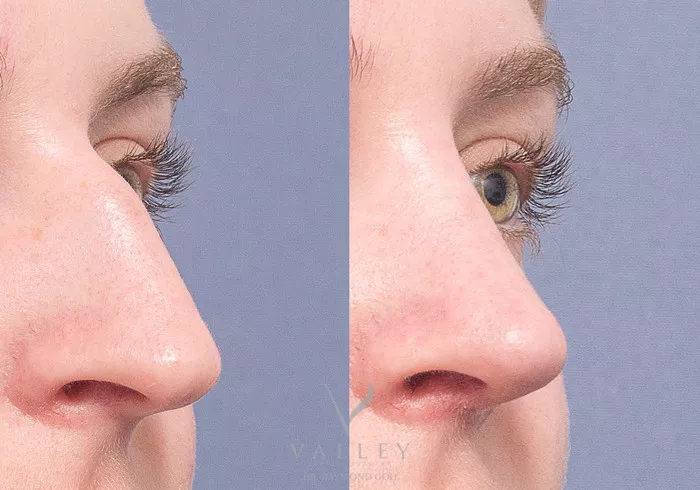Rhinoplasty, commonly referred to as a “nose job,” is a surgical procedure that can provide transformative results by enhancing the aesthetics and functionality of the nose. While the focus is often on what happens during and after the surgery, it’s equally important to consider what you should avoid doing in the days and weeks leading up to your rhinoplasty. Proper preparation is essential for a safe and successful procedure. In this article, we will discuss what not to do before rhinoplasty surgery to help you achieve the best possible outcome.
Disregarding Medical Instructions
One of the most critical aspects of preparing for rhinoplasty is following your surgeon’s medical instructions to the letter. These instructions are provided for your safety and to ensure the best possible surgical outcome. Failure to adhere to these guidelines can lead to complications or the need to reschedule your surgery.
Medical instructions typically include:
Discontinuing specific medications: Your surgeon may ask you to stop taking certain medications or supplements that can increase the risk of bleeding, such as aspirin or ibuprofen.
Quitting smoking: Smoking can hinder the body’s ability to heal and increase the risk of complications during surgery. Most surgeons will require patients to quit smoking for several weeks before and after rhinoplasty.
Avoiding alcohol and certain herbal supplements: Alcohol and certain supplements can also increase the risk of bleeding and should be avoided in the weeks leading up to your surgery.
Abiding by dietary restrictions: Your surgeon may recommend fasting for a specified period before surgery to reduce the risk of aspiration during anesthesia.
Skipping the Preoperative Consultation
The preoperative consultation with your surgeon is a crucial step in your rhinoplasty journey. This is your opportunity to discuss your goals, ask questions, and address any concerns you may have. Skipping or minimizing the importance of this consultation can lead to misunderstandings and dissatisfaction with the results.
During the consultation, you should:
Be honest about your goals and expectations: Clearly communicate what you hope to achieve with rhinoplasty, whether it’s improving aesthetics, correcting breathing issues, or both.
Share your medical history: Inform your surgeon about any pre-existing medical conditions, allergies, or medications you are currently taking.
Discuss your surgeon’s recommendations: Your surgeon will provide insights into the procedure, potential risks, and the expected recovery process. Pay close attention and ask questions if anything is unclear.
Review before-and-after photos: Your surgeon may show you before-and-after photos of previous rhinoplasty patients to help you understand what is possible and realistic.
Ignoring Your Surgeon’s Dietary Recommendations
In the days leading up to your rhinoplasty, your surgeon may provide specific dietary instructions. Following these recommendations is crucial for your safety and the success of the surgery. Typically, you will be asked to avoid solid foods and liquids for a specified period before the procedure to reduce the risk of complications during anesthesia.
It’s important to:
Adhere to the fasting guidelines: Your surgeon will provide clear instructions about when you should stop eating and drinking before the surgery. Follow these guidelines carefully to ensure a smooth and safe procedure.
Stay hydrated within the permitted timeframe: Before the fasting period begins, it’s essential to drink enough water to stay adequately hydrated. Dehydration can complicate the surgery and recovery process.
Neglecting Preoperative Care
Preparing for rhinoplasty involves more than just avoiding certain foods and medications. It also includes taking steps to ensure your body is in the best possible condition for surgery. Neglecting preoperative care can lead to complications and longer recovery times.
To optimize your preoperative care:
Get sufficient rest: Prioritize getting enough sleep in the days leading up to your surgery. A well-rested body is better equipped to handle the stress of surgery and heal effectively.
Maintain a healthy lifestyle: Eat a balanced diet rich in vitamins and nutrients. Engage in light physical activity to stay in good overall health. Avoid excessive alcohol consumption and maintain good hygiene.
Plan for transportation and support: Arrange for someone to drive you to and from the surgery center on the day of the procedure. Having a supportive friend or family member with you during the initial recovery phase can also be immensely helpful.
Failing to Prepare for the Recovery Period
Recovery is a significant aspect of the rhinoplasty process, and proper preparation can greatly impact your post-operative experience. Failing to prepare adequately for the recovery period can result in discomfort and delayed healing.
To prepare for a smooth recovery:
Set up a comfortable recovery space: Create a quiet, comfortable area at home where you can rest and recover. Have pillows, blankets, and entertainment options ready.
Stock up on supplies: Purchase any necessary supplies, such as prescription medications, over-the-counter pain relievers, saline nasal spray, and ice packs, before the surgery.
Arrange for assistance: You may need help with daily tasks during the initial days of recovery. Ensure that someone can assist you with cooking, cleaning, and other essential activities.
Follow post-operative care instructions: Your surgeon will provide detailed instructions for post-operative care. Make sure you understand and follow these instructions diligently to promote optimal healing.
Conclusion
Proper preparation before rhinoplasty surgery is essential for a safe and successful outcome. By following your surgeon’s medical instructions, attending the preoperative consultation, and taking care of your physical and emotional well-being, you can ensure that you are ready for the procedure and the recovery period that follows. Remember that your surgeon is your partner in achieving your rhinoplasty goals, and open communication and adherence to their guidance are key to a positive experience.


